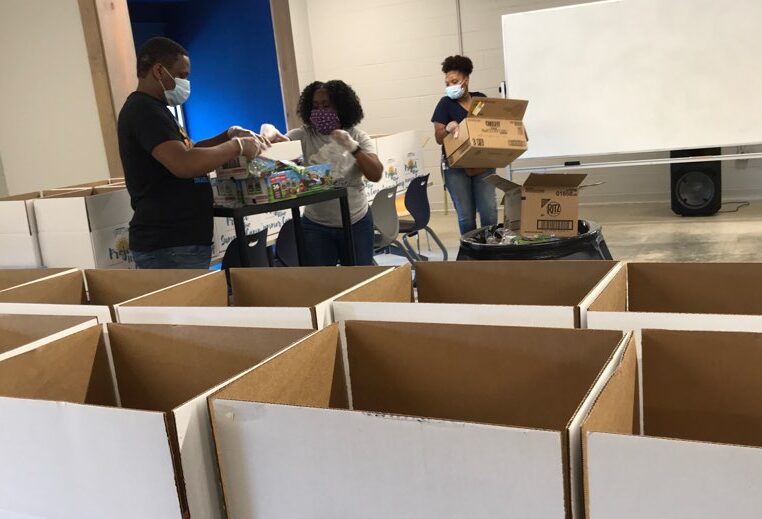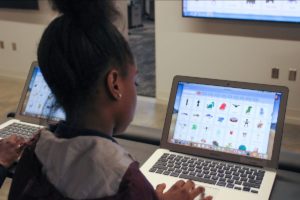
How We Adapted to Virtual Learning During COVID-19
Faced with COVID-19, Operation Shoestring has focused on what makes us work: listening to what the community needs, deploying expertise, and partnering with local organizations to make virtual learning easier for their families.
When COVID-19 hit in March, Operation Shoestring was already closed for Spring Break. When schools made the decision to close their physical campuses, we decided that we should too, and quickly reworked our plans for summer camp. For health & safety, going virtual was the best decision for Operation Shoestring and families, so we put together a task force to adapt our services to students. For interactive content for students, we landed on Canvas, an online learning platform. With Canvas, Operation Shoestring hosted Zoom rallies for students to connect with their peers and counselors, as well as activities involving physical health, creativity, and social and emotional learning.
As students start to transition back to school learning, Operation Shoestring will move into more virtual work that will coexist with school programs.
Whenever school closes, Operation Shoestring wants to pick up virtually and make sure kids have opportunities to explore, have more freedom, and learn more life skills. We also will work on an academic component, like one-on-one tutoring. Operation Shoestring has teachers that come in after their work day is over, and we pull students from the regular afterschool setting and work with them in small groups or individually.
Access to the Internet
Operation Shoestring has been in touch with parents, checking in on their needs. In addition to conversation, we’ve completed several more formal needs assessments. The first one asked about access to devices and the internet. About a third of Operation Shoestring’s parents needed devices and a few parents needed internet services, and Operation Shoestring helped families connect to different providers who were offering discounts or free internet service.
Across the state, there are people the internet is not reaching. This time really has shown where people are being left behind. Oftentimes, it’s not that people don’t want it or can’t afford it, but that resources haven’t been put in the infrastructure of their area enough for them to be able to have those things.

Access to Food
When COVID-19 closed schools, Jackson Public Schools gave kids access to free meals, but adults had to pay a certain amount. Operation Shoestring underwrote meals for families, so that people over the age of 18 could also access free meals. We partnered with Jackson Public Schools to help give out hot meals and produce baskets in conjunction with Footprint Farms. We distributed breakfast foods and snack items to families, as well as boxes with supplies like colored pencils and paper.
We partnered with In Touch Community Services to aid in agricultural education across the state, sharing videos about container gardening and sending students seeds and gardening supplies. We also partnered with St. Dominic’s to send health info and kids’ toys to families.
Genuine Empathy
Operation Shoestring goes into the community and asks people what they are looking for and what they need. That has been the historical way that Operation Shoestring operates. When we know what our community needs and what our parents need, we are able to get in touch and make it happen to the best of our power.

